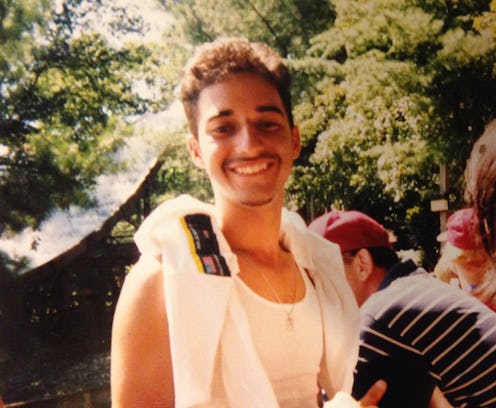Entertainment
Looking Back at 'Serial' Season 1

The biggest mystery regarding the final episode of Serial , as far as I am concerned, is what kind of reaction it would glean from social media. It might sound cynical to relegate the murder of a teenage girl and the plausibly illegitimate conviction of her likewise high school aged ex-boyfriend Adnan Syed to the jurisdiction of “buzz” — to questions about satisfying endings and narrative strengths, and worse yet about maintenance of fan appeal and conduits to interesting think pieces — but… well, here we are.
Twitter kept its promise on Thursday morning; despite a yet absent sun, I didn’t have to scroll too far before I found proclamations of excitement over the release of the season finale, newly published critiques of the problematic model and assessments of the program as a lens into the medium, and no shortage of jokes and gag images. Only half a day after one of the biggest pieces of news to grace the pop culture spectrum, in American history, Serial promised to monopolize the conversation. Just as it has for the past two months.
As we all know, the show, pioneered as a project by journalist Sarah Koenig approximately one year back and broadcast for the first time on October 3, earned the superlative midway through its 12-episode first season as “the most popular podcast ever.” This has been reflected — and how! — by the series’ relationship with Twitter. In fact, we can accredit Twitter for a wealth of its popularity.
Serial has not thrived on its narrative alone; it has built this unprecedented listenership as a provocateur of conversation. The nature of any mystery story, especially one delivered in segments — and capped each week by the sorts of questions that Koenig is wont to mull about — is to stir suspicions. We’ve seen that in spades with Serial: theories upon theories upon theories.
At the precipice of its popularity, the show’s principal source of entertainment seemed independent entirely from the hour a fan would spend with it each week. The fun — and yeah, what may have easily (perhaps preferably, arguably more respectfully) taken form as a solemn breakdown of the case at hand, did indeed become fun, and by no ostensible accident — was in the Twitter feed, the message boards, the party conversations.
Effectively, Serial became the long awaited new Lost.
Again, cynical. Very. And rich with issues to pick apart. Standing at the forefront of these, there are the moral implications. What is the proper decorum of a public playing audience to the true story of a teenage girl’s, or anyone’s, murder? What sort of reverence do we owe to the real living people involved? The families of homicide victim Hae Min Lee and her jailed killer Adnan Syed? Furthermore, to the suspects upon whom we’re inclined to pin our theories? To Jay?
As episodes passed, fandom gave way to backlash — inevitable for anything as popular as Serial, though doubled in gravity considering the real world parties in play. An early purveyor of qualms with the show (and my own introduction to Serial in the first place) came from another podcast: a late October episode of Fighting in the War Room, which preceded the barrage of questions and critique about Koenig’s responsibility to her story and audience, and whether or not she was handling such successfully.
Just as most of Koenig’s questions went unanswered by the close of her finale, many of ours do about the merits of such a program. I trust (and with more vigor even than she does Adnan) that Koenig began this journey with as noble an intention as an objective journalist might have: to find truth. Sure, anyone could tell that she was hoping this unabashed truth would align with Adnan’s innocence, and perhaps highlight an outstanding flaw in our American justice system — isn’t that the dream of any good journalist?
But did Koenig give way to the demands of the serial narrative? To the doubtlessly unforeseen volume of her audience’s voice? To, most cynically of all, money?
We can’t look at Serial as a story without considering all these things: profitability, unpredicted influence, and the culture — toxic or otherwise — to spawn from it. Furthermore, we can’t exactly look at Serial in a vacuum: the two months we’ve spent with the show have happened to sync up with a season both particularly violent and plentiful in questions (well, not exactly questions as much as outright exclamations) of injustice.
All this in mind, it’s tough to walk away from a first season of Serial understanding just what it did to us, or what we did to it. Is this kind of culture helping our society? Is it bringing us closer to discussions we need to have? Or are we heading in the other direction?
I certainly don’t know. Maybe we’ll find out next season.
Image: Serialpodcast.org